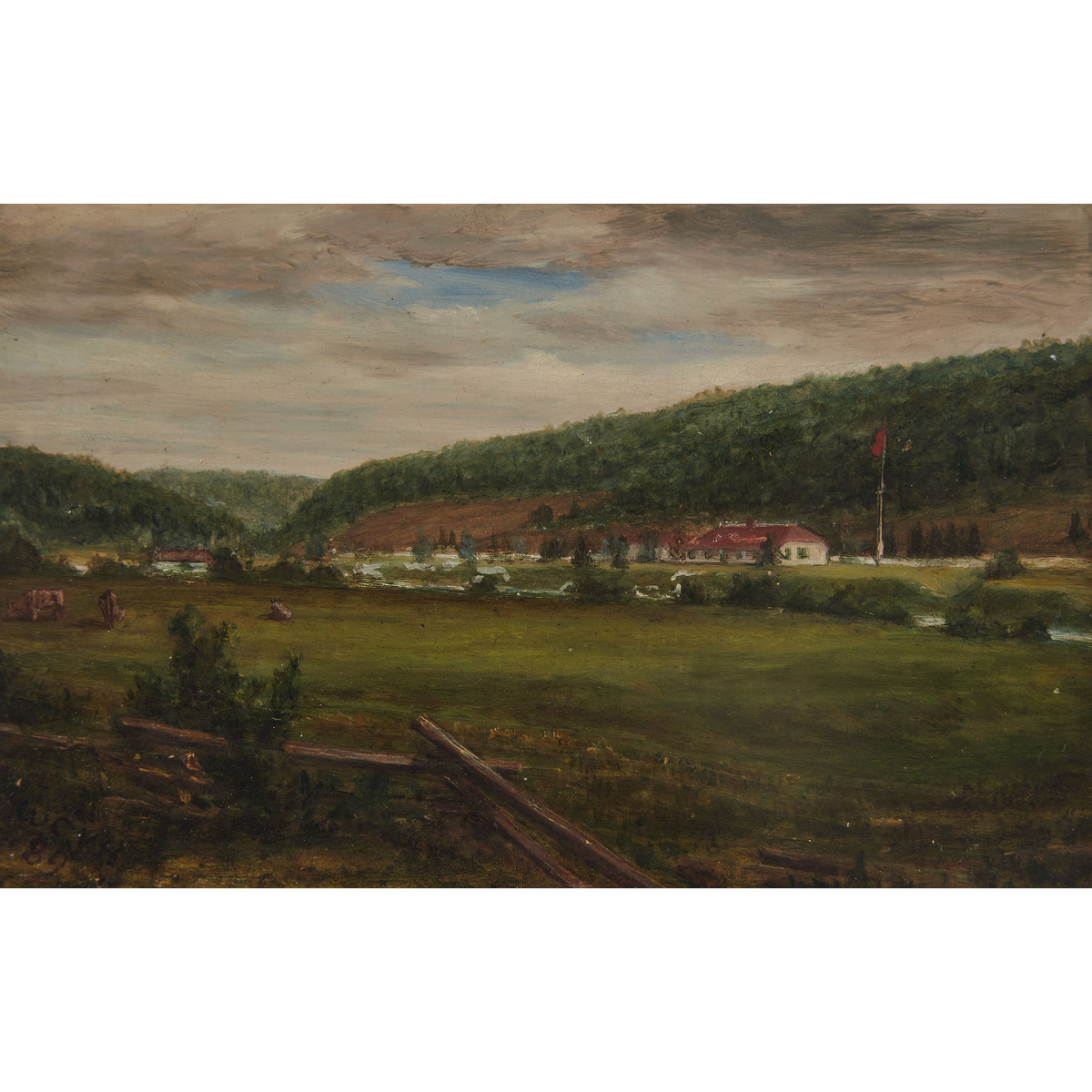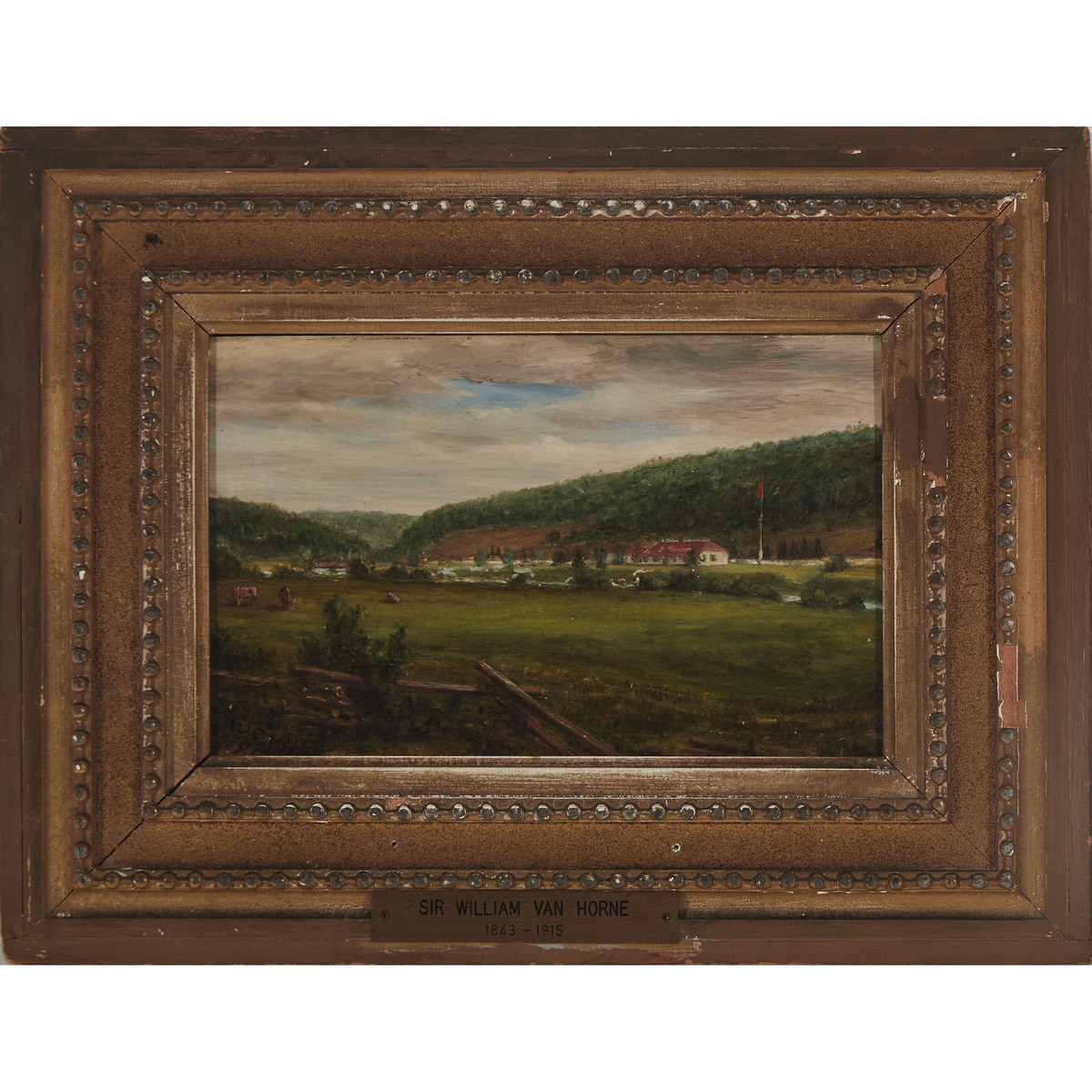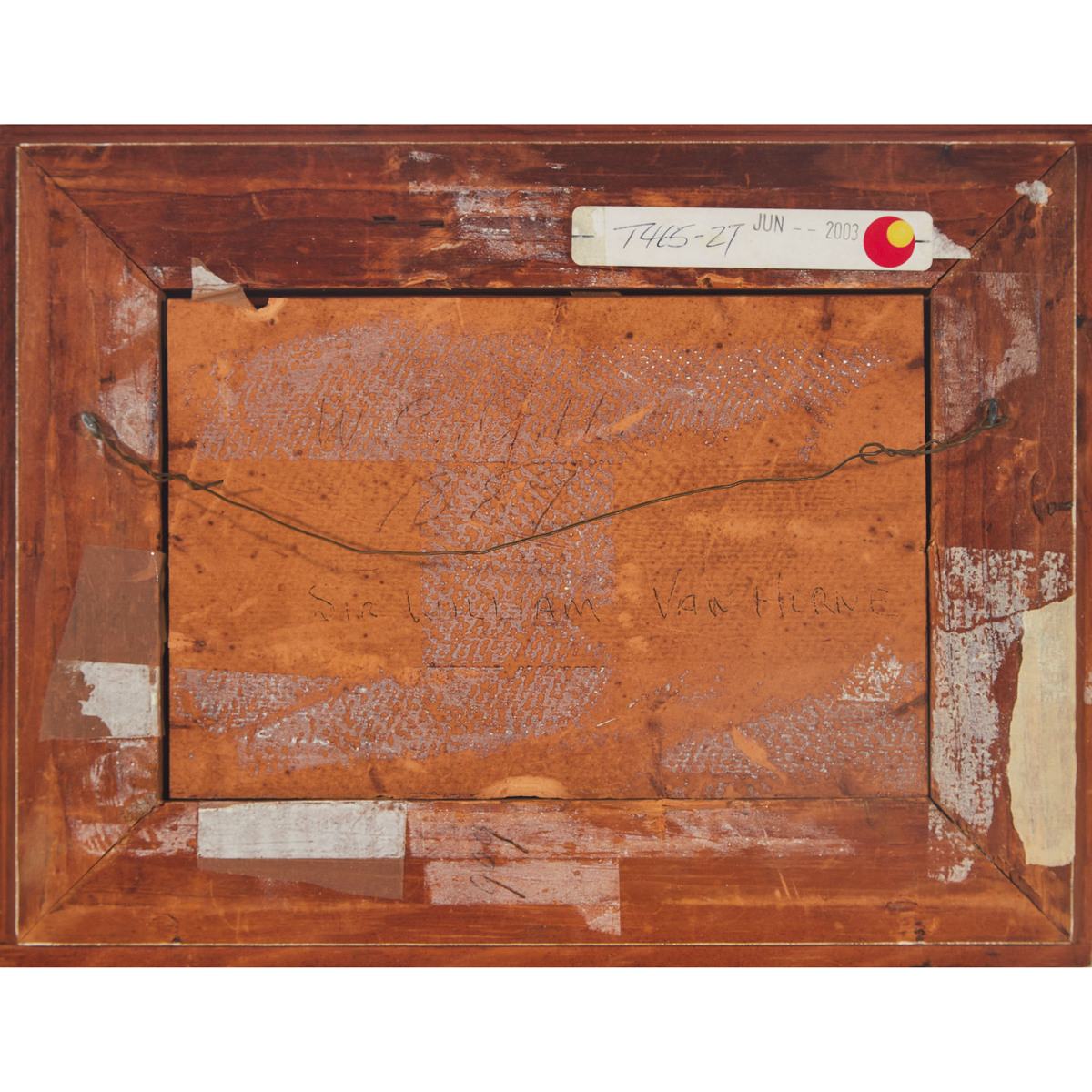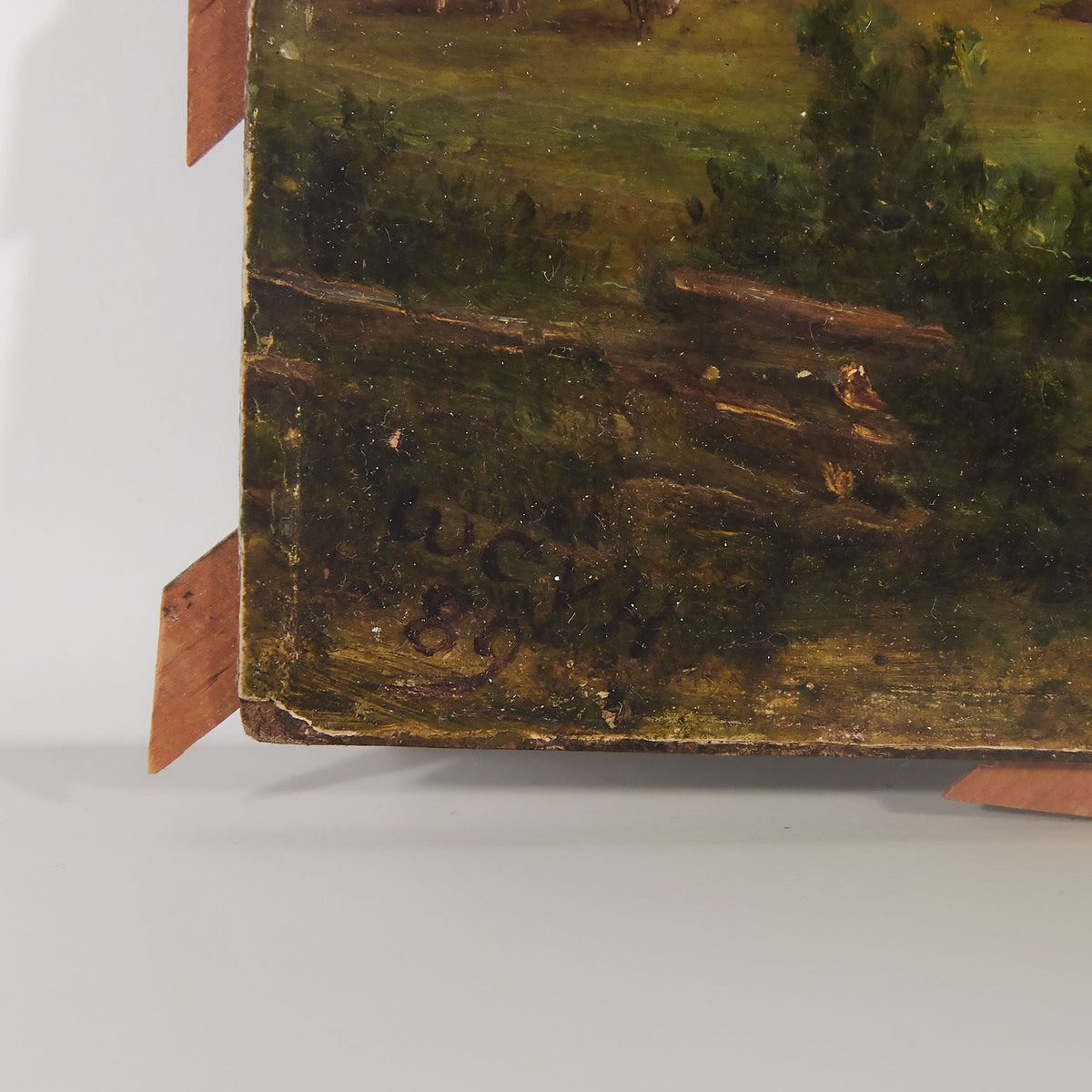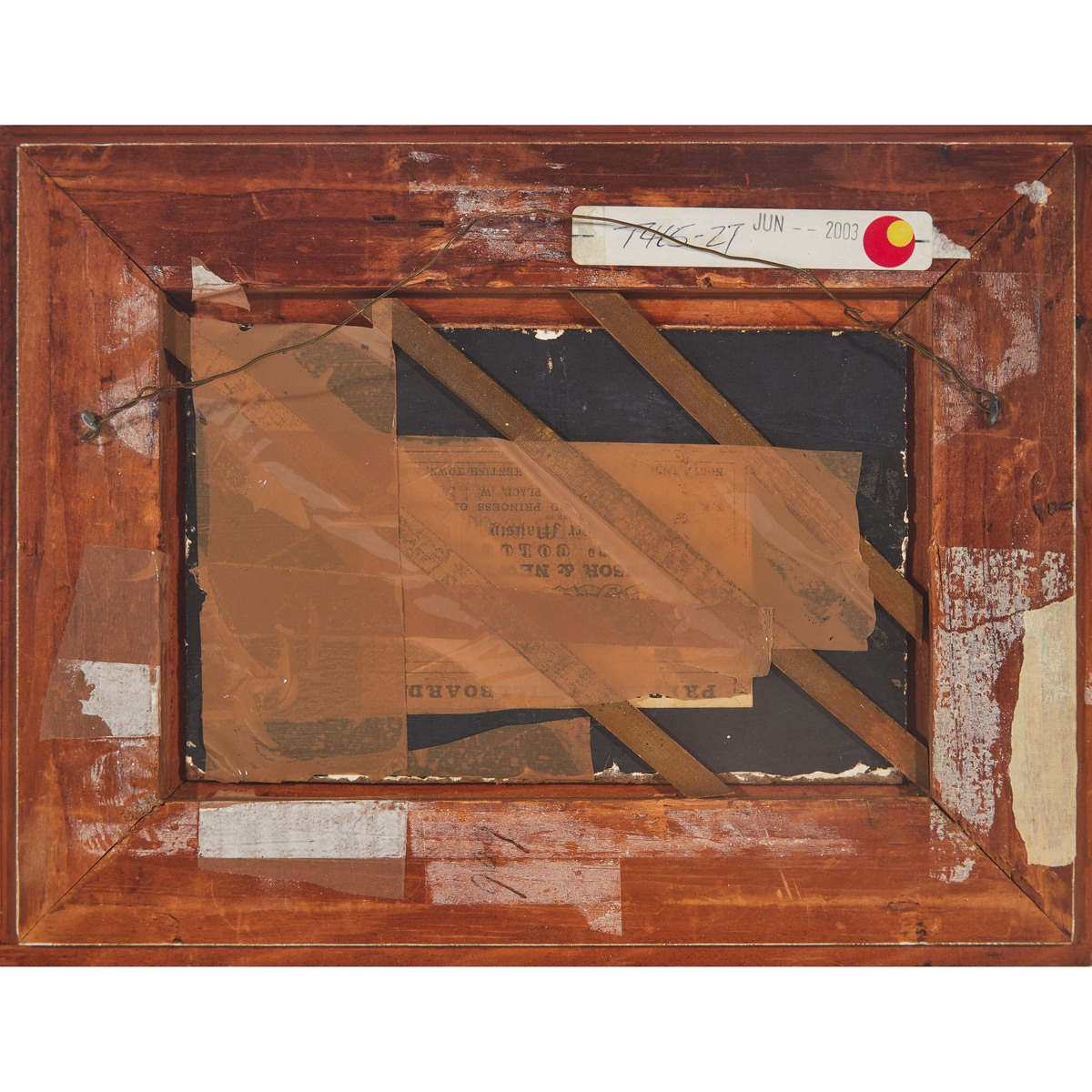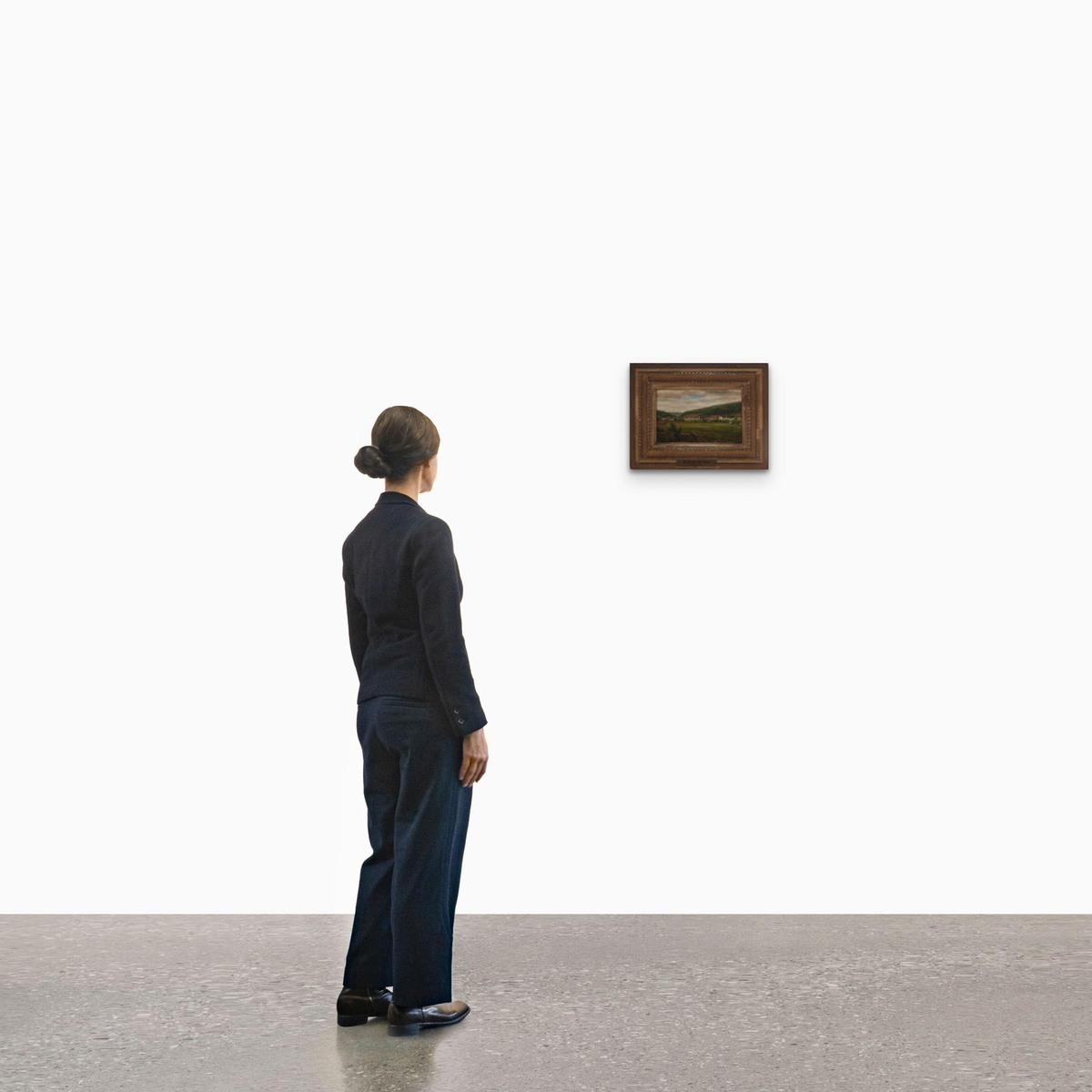45
Sir William Cornelius Van Horne (1843-1915), FISHING CAMP, LES FOURCHES, MATAPEDIA AND CAUSAPSCAL, N
FISHING CAMP, LES FOURCHES, MATAPEDIA AND CAUSAPSCAL, NEW BRUNSWICK, 1889
oil on board
signed with initials "WCVH" and dated "89"
4.75 x 7 in — 12.1 x 17.8 cm
Provenance:
Private Collection, Toronto, ON;
Joyner Waddington's, Toronto, ON, 4 Jun 2003, lot 196;
Collection of Sir Christopher and Lady Ondaatje
Note:
George Stephen, 1st Baron Mount Stephen (1829-1921) was a Canadian businessman and the first president of the Canadian Pacific Railway. Stephen was tasked with raising the enormous sum of $100 million required to finance the project. Despite his humble beginnings, he became the richest man in Canada, as well as a noted philanthropist.
Stephen’s great passion in life was salmon fishing. In 1873, he purchased a property at the confluence of the Matapédia and Cascapédia rivers, a junction known as Les Fourches (the forks). The Matapédia is known as one of the great salmon rivers in the world, and once it became accessible courtesy of the railroad, it attracted fishermen from around the world.
A great pioneer and promoter of sport fishing in the Gaspé region, Stephen would visit this fish camp often before relocating to a second fishing camp in Grand-Métis in 1886. Fishing camps like this one did double-duty as both a place of leisure and business. Stephen kept a log of his visitors, which included financiers, nobility, politicians, lawyers, and fellow members of the CPR, including William Van Horne.
Van Horne, while most famous for his role in building Canada’s transcontinental railway, was also a sophisticated artist who most likely painted this work while holidaying with Stephen.
In the early 20th century, a group of businessmen bought the estate and renamed it the Matamajaw Salmon Club. Today it is a heritage site open to the public.
For another Van Horne painting of a fishing camp, we invite you to view lot 20.
Estimate: $3,000—5,000
FISHING CAMP, LES FOURCHES, MATAPEDIA AND CAUSAPSCAL, NEW BRUNSWICK, 1889
oil on board
signed with initials "WCVH" and dated "89"
4.75 x 7 in — 12.1 x 17.8 cm
Provenance:
Private Collection, Toronto, ON;
Joyner Waddington's, Toronto, ON, 4 Jun 2003, lot 196;
Collection of Sir Christopher and Lady Ondaatje
Note:
George Stephen, 1st Baron Mount Stephen (1829-1921) was a Canadian businessman and the first president of the Canadian Pacific Railway. Stephen was tasked with raising the enormous sum of $100 million required to finance the project. Despite his humble beginnings, he became the richest man in Canada, as well as a noted philanthropist.
Stephen’s great passion in life was salmon fishing. In 1873, he purchased a property at the confluence of the Matapédia and Cascapédia rivers, a junction known as Les Fourches (the forks). The Matapédia is known as one of the great salmon rivers in the world, and once it became accessible courtesy of the railroad, it attracted fishermen from around the world.
A great pioneer and promoter of sport fishing in the Gaspé region, Stephen would visit this fish camp often before relocating to a second fishing camp in Grand-Métis in 1886. Fishing camps like this one did double-duty as both a place of leisure and business. Stephen kept a log of his visitors, which included financiers, nobility, politicians, lawyers, and fellow members of the CPR, including William Van Horne.
Van Horne, while most famous for his role in building Canada’s transcontinental railway, was also a sophisticated artist who most likely painted this work while holidaying with Stephen.
In the early 20th century, a group of businessmen bought the estate and renamed it the Matamajaw Salmon Club. Today it is a heritage site open to the public.
For another Van Horne painting of a fishing camp, we invite you to view lot 20.
Estimate: $3,000—5,000
Canadian, International, and Inuit Art
Ends from
Venue Address
For Waddington's delivery information please telephone +1 4165049100.
Important Information
Bidding for this sale will take place entirely online on Waddingtons Online Auction Platform
Waddington’s charges a buyer’s premium of 23% on the hammer price up to and including $25,000 CAD. Hammer prices in excess of $25,000 CAD will be charged a buyer’s premium of 20%. Payment for purchases is accepted in Canadian dollars by cash, certified cheque drawn on a Canadian bank, travelers cheque, bank draft or transfer, Visa or Mastercard within 10 days from the date of the sale.
Terms & Conditions
Terms and conditions:
1. All lots are sold “AS IS”. Any description issued by the auctioneer of an article to be sold is subject to variation to be posted or announced verbally in the auction room prior to the time of sale. While the auctioneer has endeavoured not to mislead in the description issued, and the utmost care is taken to ensure the correct cataloguing of each item, such descriptions are purely statements of opinion and are not intended to constitute a representation to the prospective purchasers and no warranty of the correctness of such description is made. An opportunity for inspection of each article is offered prior to the time of sale. No sale will be set aside on account of lack of correspondence of the article with its description or its reproduction, if any, whether colour or black & white. Some lots are of an age and/or nature which preclude their being in pristine condition and some catalogue descriptions make reference to damage and/or restoration. The lack of such a reference does not imply that a lot is free from defects nor does any reference to certain defects imply the absence of others. Frames on artwork are not included as part of purchase or condition. It is the responsibility of prospective purchasers to inspect or have inspected each lot upon which they wish to bid, relying upon their own advisers, and to bid accordingly.
2. Each lot sold is subject to a premium as part of the purchase price as per below:
Live and Online Auctions
(excluding Canadian Fine Art, Inuit Art, The Art of Canada and Fine Wine & Spirits Auctions)













